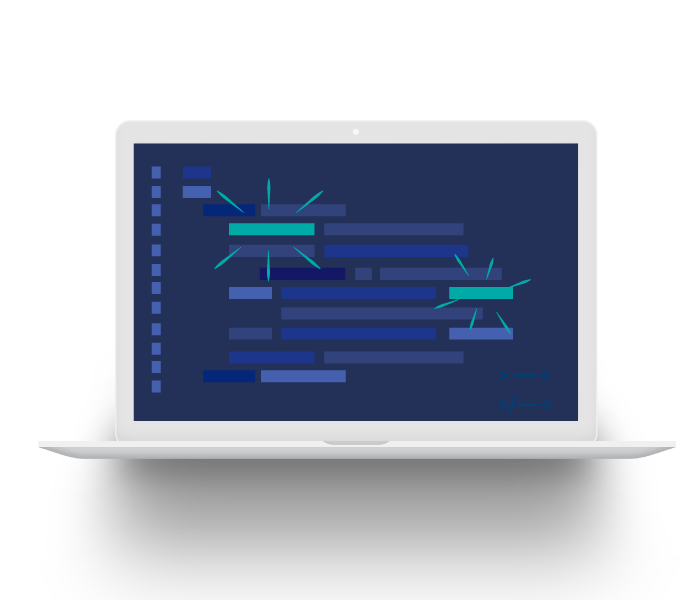The nFocus Team
nFocus is the longest established UK-owned independent test consultancy and we are proud that our clients continue to work with us year after year.
The Possibilities & The Impact of UAT on Agile Performance
The Manifesto for Agile Software Development is based on twelve principles:
- Customer satisfaction by early and continuous delivery of valuable software
- Welcome changing requirements, even in late development
- Deliver working software frequently (weeks rather than months)
- Close, daily cooperation between business people and developers
Read More
Topics:
Agile,,
Software Testing,
User Acceptance Testing,
UAT
Guidelines for Implementing Regression Testing
Regression testing is performed to verify that a code change executed in the software does not impact the existing functionality of the product. By regression testing, you are making sure that the product works fine with new functionality, any bug fixes or changes with existing features. Previously executed test cases are re-executed in order to verify the impact of change has not adversely affected existing functionality.
Read More
Topics:
Software Testing,
Regression Testing
Don't Push Aside Your QA Team
Like other engineering principles, software engineers should be responsible for delivering high quality, bug free products that work under all conditions. I wholeheartedly agree that developers (and the whole team) should be accountable for product quality and there needs to be a mind, and culture, shift so that the responsibility of quality control is not abdicated to the testing team.
Read More
Topics:
Software Testing,
DevOps,
Developer Based Testing
Risk Assessment and Analysis
As testers we are inclined to try to test everything, however factors such as timescales, available resources, technical complexities and costs can prevent this from happening.
We need to use the resources we have as effectively as possible, we need to test the most important things as a priority.
Read More
Topics:
Software Testing,
Risk Based Testing
What Is Digital Transformation – And Where Does it Fit Into Testing?
The glib answer to the question “where does testing fit into your Digital Transformation project?” is “to get a high-quality product and the expected business outcomes, testing needs to feature highly in your digital transformation – as it does with any IT project.“
Read More
Topics:
Software Testing,
Digital Transformation
How User Acceptance Testing Can Help You Reach Your Goals
User Acceptance Testing (UAT) is one of the final phases in the project life cycle and provides end users of the system with the opportunity to test the system prior to its live state. It's the final check that the Business Processes will function in the manner they were intended and built.
Read More
Topics:
Software Testing,
UAT
Supporting Business Objectives
You’ll be fully aware that digital transformation is at the top of every IT Directors list of things to do. Companies today are facing a couple of big challenges, staying ahead and on top of new technologies and at the same time providing outstanding customer experience. To be clear, digital transformation is the process of using new or modified business processes and customer experiences to meet changing business and market requirements by use of new and advanced technology.
Read More
Topics:
Software Testing,
Digital Transformation,
Digital Assurance Framework
What Are the Advantages of Test Automation in DevOps?
Successful DevOps needs automated processes throughout the software delivery life cycle. It relies on a culture and environment where building, testing and releasing software can happen rapidly, frequently and reliably.
Read More
Topics:
Software Testing,
test automation,
DevOps,
Testing in DevOps
The Top 10 Challenges When Embarking on a DX Journey
When embarking on a Digital Transformation (DX) project, you would expect a few risk items to be on your radar, but only with actual experience of DX projects does it prepare you for the reality and true extent of the challenges you expect to experience.
Read More
Topics:
Software Testing,
Digital Transformation
Defining Business as Usual in the Context of DX
The business as usual (BAU) team play a pivotal part of any Digital Transformation (DX) project. Not only do they keep the wheels turning whilst your company embarks on a digital upgrade, but also continue business essential projects whilst DX takes place. The person creating the DX Test Strategy must understand the ongoing goals of the BAU projects and be acutely aware of what is happening and when; this is to ensure and to allow the appropriate approach to be taken to capture changes to core and downstream applications before they are migrated to the new platform. Additionally, detailing the level of risk required to deliver the project to quality, time and cost should also be considered and mitigated.
Read More
Topics:
Software Testing,
Digital Transformation

















.png)
